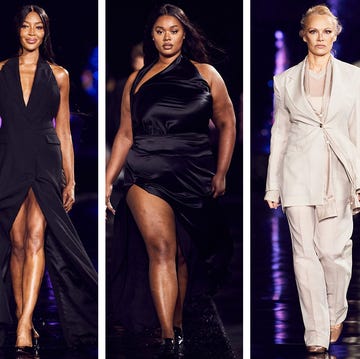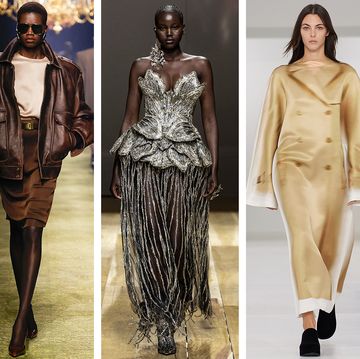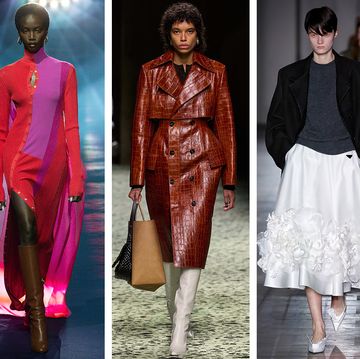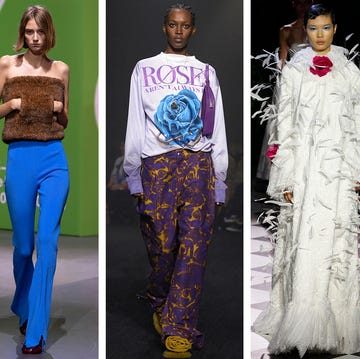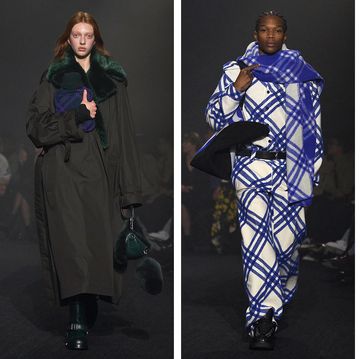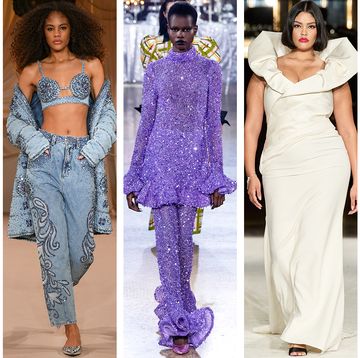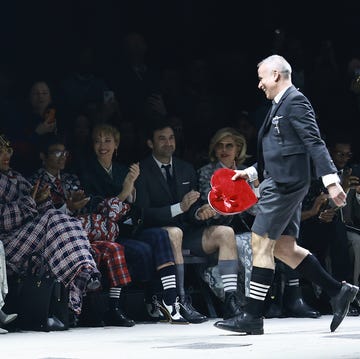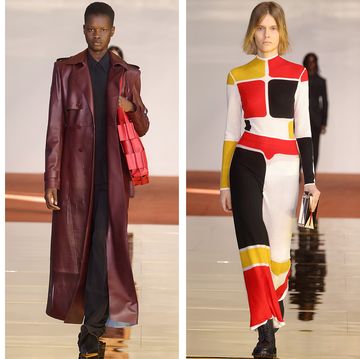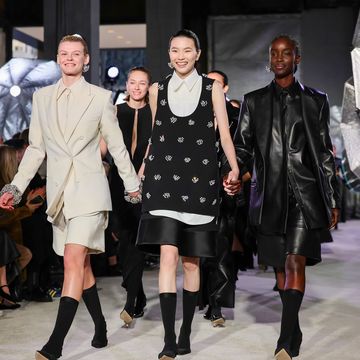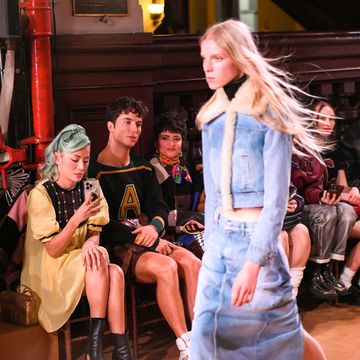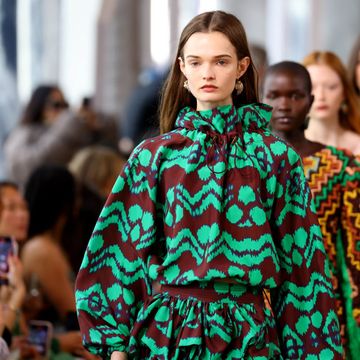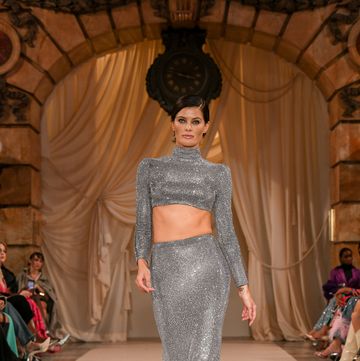It has become increasingly hard to stand out during fashion week for a number of reasons. The market is saturated, venues begin to look similar, hair and makeup become a right as opposed to a privilege, the same models walk the same shows, and so on and so forth. Finales hit the runway and are immediately posted, dissected, disseminated, and, within the next 24 hours, it’s nearly impossible to remember much about the collection at all. Fashion is flattening and rendering itself obsolete because it refuses to ask questions and not just provide answers.
That’s where Elena Velez comes in. Hailing from Milwaukee, Wisconsin, the designer is a rare talent because of her comfort in creating the ambivalent and the unresolved. She thrives in the chaos, specifically in the pit of desire and despair, crafting a world of clothing that is at once so simple and yet so fraught that you’re left with an impression that no Instagram Story could possibly replicate. In the digital age of planned obsolescence, that’s very significant.
Velez is on a roll of sorts in the fashion industry, having just won Emerging Designer of the Year at the CFDA Awards in November, establishing herself as a name to know on the fashion week calendar. She held her third show around the corner from her studio in Greenpoint, Brooklyn, bringing the fashion set to the rarely-visited neighborhood, and to her directly. The move to Brooklyn felt right, and the show space finally matched the energy Velez brings to the industry. The dark warehouse came equipped with large TVs and projectors playing a brand video on a loop as guests walked in, and the show started with a large, literal bang. Industrial techno blared through the speakers as singer-songwriter and fashion muse Eartheater shuffled—or rather, waddled—out in a barely-there maxi dress held together with industrial rope.
The rest of the collection was somewhat dialed down from last season, with intricately designed and almost traditional-looking dresses swapped for gauzy shirt dresses, canvas jumpsuits, and massive leather pants and shirts. Models barely wore makeup, if any at all, and hair was left imperfect and tousled; some were given waves down to the smalls of their backs. The workwear elements of the industrial, shipbuilding Midwest milieu Velez grew up in have never felt more present in her work, gloves and all.
She also amped up her knitwear, pairing a tattered knit maxi skirt with a simple white corset (by a male-presenting model, no less). A massive hooded zip-up with a padded body and marshmallow-like sleeves was teamed with distressed leather boots that, as Velez exclusively told ELLE.com, fit with “the winter hellscape my muse inhabits.” The finale dress was the most restrictive look, which Velez went on to say was “informed by the process of making from the mindset of a utilitarian who prioritizes functionality and urgency over perfection or beauty. It’s a reflection of the sort of maker culture I come from: the proletarian who gets the job done, free from the awareness of an aesthetic.”
In an era where beauty and appearances are pushed to the height of perfection, Velez openly laughs in the face of such triviality. Her beauty is of a different breed, one that seeks not to conform, but to defy and resist homogenization and commercialization. Maybe that’s why she sent one of her models down the runway holding her recently-won CFDA Award like a murder weapon. Tread carefully around the Elena Velez woman, for she will not—and cannot—hold back.

Kevin LeBlanc is the Fashion Associate at ELLE Magazine. He covers fashion news, trends, and anything to do with Robyn Rihanna Fenty.




